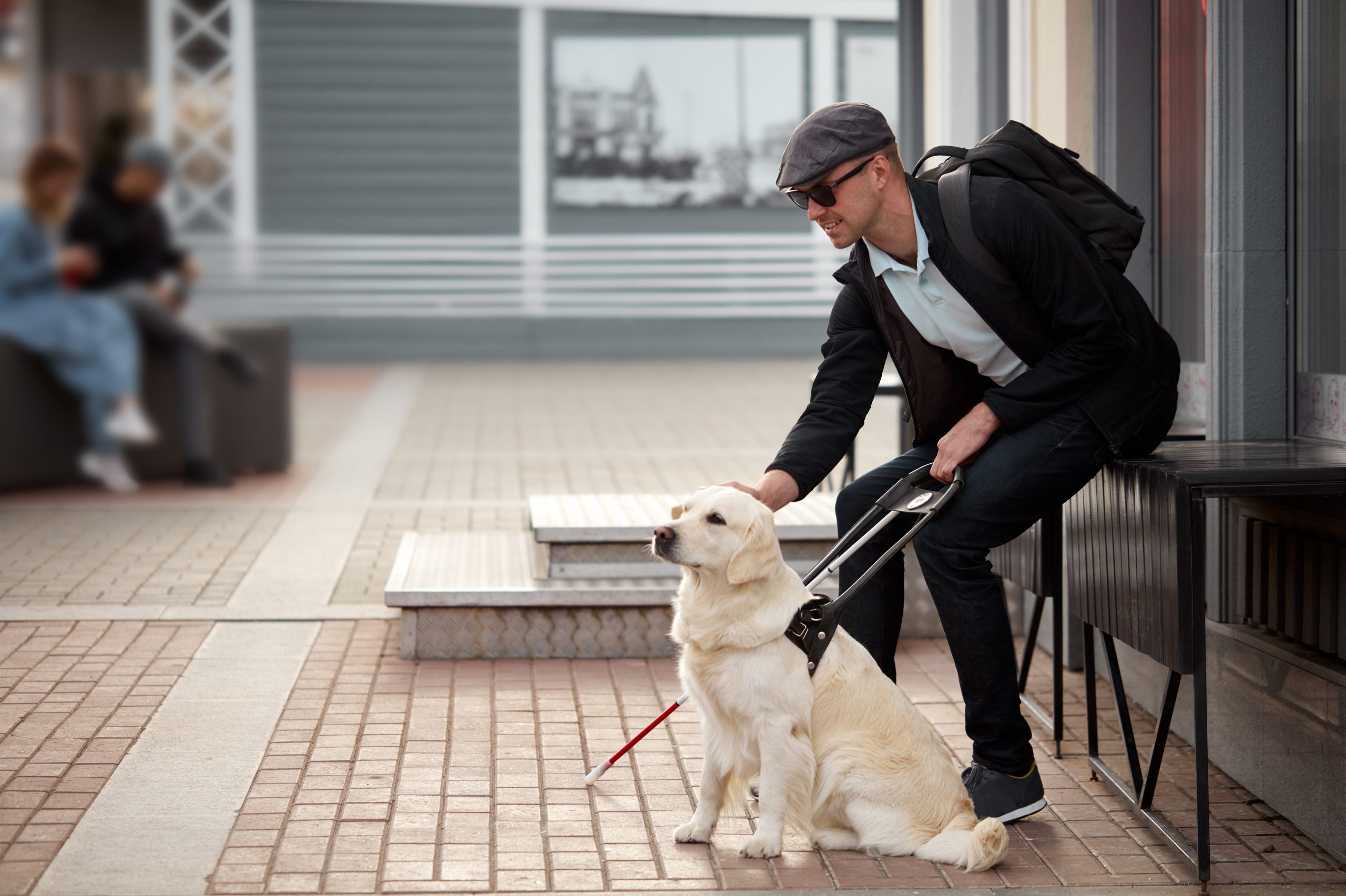Service Animals

Only dogs and miniature horses are service animals.
Service animals have different legal protections in different settings. Housing and air transportation have their own definitions of, and protections for, service animals, separate from those under the ADA. Please see below for links to information about the Fair Housing Act and the Air Carrier Access Act.
Under the Americans with Disabilities Act (ADA), only dogs (and miniature horses where reasonable) qualify as service animals. The ADA applies to public businesses and state and local entities. Dogs or miniature horses only qualify if they are trained to perform a task or tasks directly related to an individual’s disability, such as guiding people who are blind, pulling a wheelchair, or alerting someone of an imminent seizure.
Pets, emotional support animals (ESAs), comfort animals and therapy animals are not service animals under the ADA because they are not trained to perform a task or tasks directly related to an individual’s disability. However, Emotional Support Animals are covered under the Fair Housing Act (FHA). Please see below for a link to more information on the FHA.
Service animals must be allowed to accompany the handler (‘handler’ means owner or, in New Mexico and some other states, a trainer) to any place in a building or facility where members of the public, program participants, customers, or clients are allowed. Even if a business or public program has a “no pets” policy, they may not deny entry to a person with a service animal.

If it is not obvious what task or tasks an animal has been trained to perform, only two questions may be asked:
- Is this a service animal required due to a disability?
- What task or work is the animal trained to perform?
Asking the handler to have the animal perform the task is not allowed. It’s also important to note that service animals are not required to be certified or wear identification of any kind, though some handlers may present a certification and some service animals may wear a vest or other identification.
An entity may deny access to a service animal whose behavior is unacceptable or in situations in which the person with a disability is not in control of the animal. Uncontrolled barking, sniffing food at a restaurant table, jumping on other people, or running away from the handler are examples of unacceptable behavior for a service animal. The handler must be given the opportunity to control the animal and if they are unable to do so, they must be allowed back on the premises without the animal. In addition, it may be appropriate to exclude a service animal from places such as operating rooms or burn units where the animal’s presence may compromise a sterile environment.
The 2013 New Mexico State Legislature passed a bill (SB320) that updated the Service Animal Act, 28-11-1.1 NMSA 1978. Sponsored by Senator Nancy Rodriguez, Santa Fe, the Service Animal Act aligns New Mexico’s statute with the 2011 updates to the Americans with Disabilities Act (ADAAA). Unlike the ADA and ADAAA, New Mexico’s Service Animal Act also prohibits a person from misrepresenting a dog as a service animal and provides penalties, including a $1,000 fine and/or jail time. Additionally, in New Mexico service animals in training are allowed the same access as a fully trained service animal. The law became effective June 14, 2013.
For additional information, call the New Mexico Governor’s Commission on Disability at 505-476-0412.
Handouts
Links To National and State Resources
Videos
Posters
Coming soon!
Sample Service Animal Policies
Other Regulations and Resources
Service animals have different legal protections in different settings. Housing and air transportation have their own definitions of, and protections for, service animals, separate from those under the ADA.

Reasonable Accommodations Under the Fair Housing Act (FHA)
Too often, housing discrimination results from a lack of understanding about the needs of individuals with disabilities and the requirements imposed by law. Education and communication are key to reducing this discriminatory conduct.

Service Animals in Employment
Service animals in the employment setting are covered under Title I of the ADA and are handled very differently from service animals under Title II (state and local government settings) and Title III (private businesses, aka public accommodation). The best resource for service animals under Title I is the Job Accommodation Network (JAN).

The U.S. Department of Justice (DOJ) Housing Enforcement Division
The Department of Justice (DOJ) is pleased to provide the public with a variety of resources – from publications, reports, and frequently requested forms to case highlights, legal briefs, opinions, and judicial orders.

Air Carrier Access Act
In December of 2020 the US Department of Transportation (DOT) announced its Final Rule on traveling by air with service animals. Among many other changes, emotional support animals are no longer considered service animals under the ACAA.
